Anshul Joshi - Julia for Data Science
Here you can read online Anshul Joshi - Julia for Data Science full text of the book (entire story) in english for free. Download pdf and epub, get meaning, cover and reviews about this ebook. year: 2016, publisher: Packt Publishing, genre: Computer. Description of the work, (preface) as well as reviews are available. Best literature library LitArk.com created for fans of good reading and offers a wide selection of genres:
Romance novel
Science fiction
Adventure
Detective
Science
History
Home and family
Prose
Art
Politics
Computer
Non-fiction
Religion
Business
Children
Humor
Choose a favorite category and find really read worthwhile books. Enjoy immersion in the world of imagination, feel the emotions of the characters or learn something new for yourself, make an fascinating discovery.
- Book:Julia for Data Science
- Author:
- Publisher:Packt Publishing
- Genre:
- Year:2016
- Rating:3 / 5
- Favourites:Add to favourites
- Your mark:
Julia for Data Science: summary, description and annotation
We offer to read an annotation, description, summary or preface (depends on what the author of the book "Julia for Data Science" wrote himself). If you haven't found the necessary information about the book — write in the comments, we will try to find it.
- An in-depth exploration of Julias growing ecosystem of packages
- Work with the most powerful open-source libraries for deep learning, data wrangling, and data visualization
- Learn about deep learning using Mocha.jl and give speed and high performance to data analysis on large data sets
Julia is a fast and high performing language thats perfectly suited to data science with a mature package ecosystem and is now feature complete. It is a good tool for a data science practitioner. There was a famous post at Harvard Business Review that Data Scientist is the sexiest job of the 21st century. (https://hbr.org/2012/10/data-scientist-the-sexiest-job-of-the-21st-century).
This book will help you get familiarised with Julias rich ecosystem, which is continuously evolving, allowing you to stay on top of your game.
This book contains the essentials of data science and gives a high-level overview of advanced statistics and techniques. You will dive in and will work on generating insights by performing inferential statistics, and will reveal hidden patterns and trends using data mining. This has the practical coverage of statistics and machine learning. You will develop knowledge to build statistical models and machine learning systems in Julia with attractive visualizations.
You will then delve into the world of Deep learning in Julia and will understand the framework, Mocha.jl with which you can create artificial neural networks and implement deep learning.
This book addresses the challenges of real-world data science problems, including data cleaning, data preparation, inferential statistics, statistical modeling, building high-performance machine learning systems and creating effective visualizations using Julia.
What you will learn- Apply statistical models in Julia for data-driven decisions
- Understanding the process of data munging and data preparation using Julia
- Explore techniques to visualize data using Julia and D3 based packages
- Using Julia to create self-learning systems using cutting edge machine learning algorithms
- Create supervised and unsupervised machine learning systems using Julia. Also, explore ensemble models
- Build a recommendation engine in Julia
- Dive into Julias deep learning framework and build a system using Mocha.jl
Anshul Joshi is a data science professional with more than 2 years of experience primarily in data munging, recommendation systems, predictive modeling, and distributed computing. He is a deep learning and AI enthusiast. Most of the time, he can be caught exploring GitHub or trying anything new on which he can get his hands on. He blogs on anshuljoshi.xyz.
Table of Contents- The Groundwork Julias Environment
- Data Munging
- Data Exploration
- Deep Dive into Inferential Statistics
- Making Sense of Data Using Visualization
- Supervised Machine Learning
- Unsupervised Machine Learning
- Creating Ensemble Models
- Time Series
- Collaborative Filtering and Recommendation System
- Introduction to Deep Learning
Anshul Joshi: author's other books
Who wrote Julia for Data Science? Find out the surname, the name of the author of the book and a list of all author's works by series.

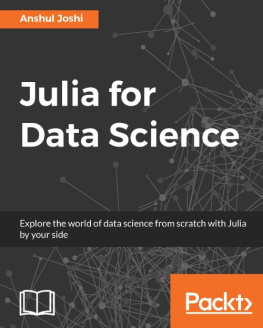

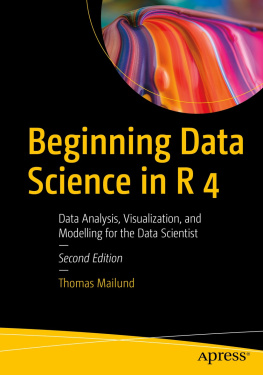

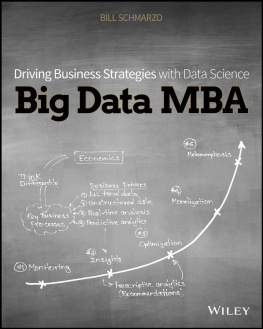
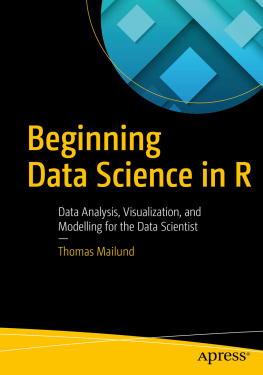
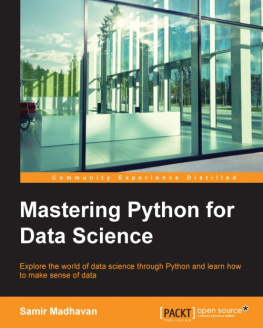
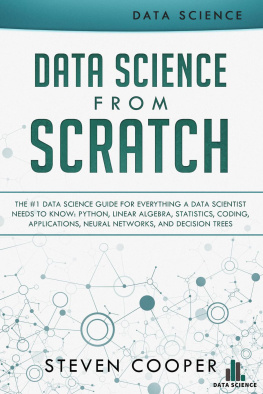
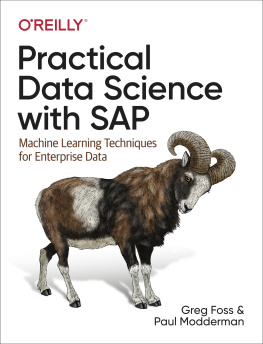
![Anshul Joshi [Anshul Joshi] - Julia for Data Science](/uploads/posts/book/119635/thumbs/anshul-joshi-anshul-joshi-julia-for-data-science.jpg)
![Thomas Mailund [Thomas Mailund] - Beginning Data Science in R: Data Analysis, Visualization, and Modelling for the Data Scientist](/uploads/posts/book/119629/thumbs/thomas-mailund-thomas-mailund-beginning-data.jpg)
